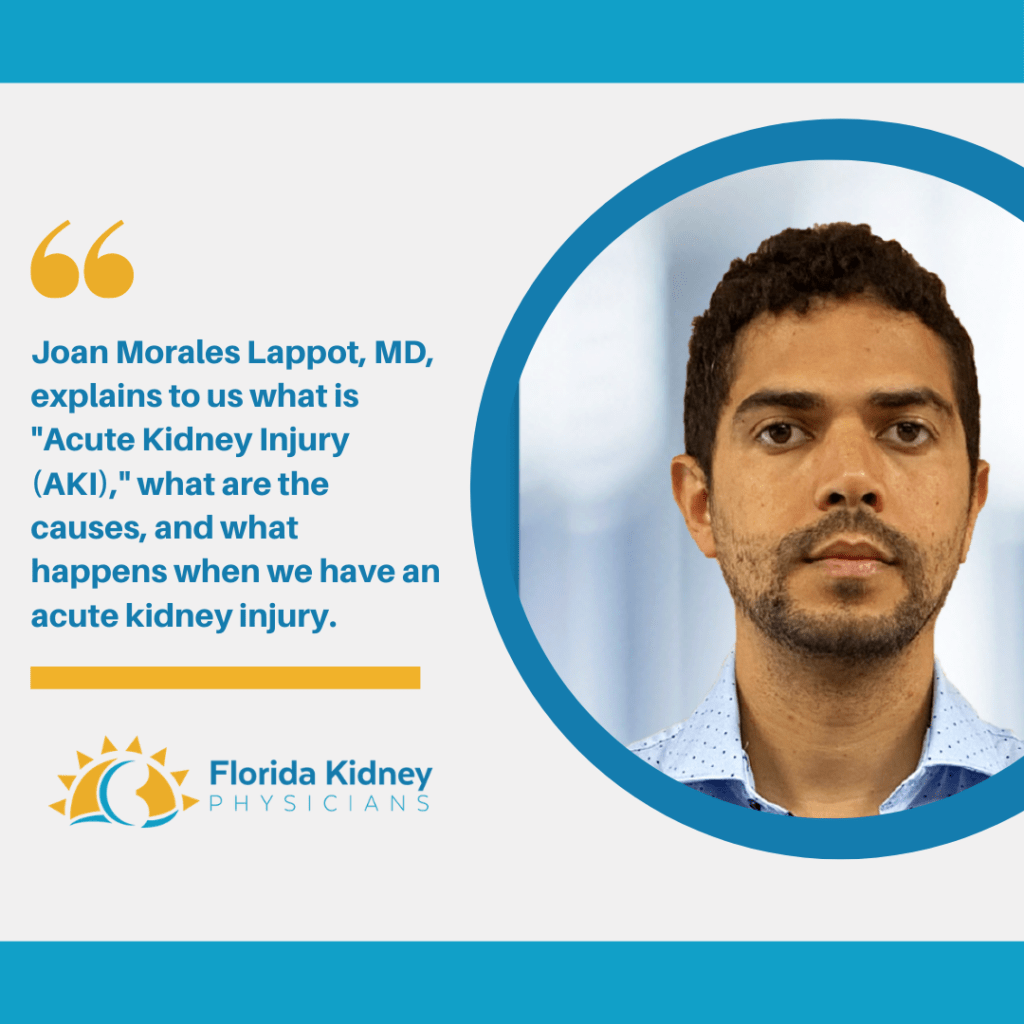Joan Morales Lappot, MD, explains to us what is "Acute Kidney Injury (AKI)," what are the causes, and what happens when we have an acute kidney injury.
Acute Kidney Injury
For those who don't know, an Acute Kidney Injury (AKI) is when your kidneys stop working suddenly, over a concise period of time. Watch Dr. Morales Lappot's video if you want to know more about "AKI" : https://youtu.be/8DauGLszJCA
One of the major functions of the kidney is to filter blood. The other functions are maintaining normal blood pressure and maintaining fluid status apart from hormones like vitamin D production and erythropoietin, which is used to make hemoglobin.
When the function of the kidney is not well, we call this an acute kidney injury. An acute kidney injury might happen due to several reasons. One of them might be there is enough blood circulating through the kidneys to filter all of this. The other reason is that there is a problem with the filter itself, meaning a problem inside the kidneys.
Another reason, if there is a problem after the kidney’s filter leaving the urine accumulated. Meaning in the ureters which are the little tubes coming out the kidney, or the bladder which is where the urine accumulates or in case of men, the prostate area which can be enlarged, and it can be very difficult to let the urine pass through it.
When we have an acute kidney injury several things can happen. The blood pressure might increase because we are not controlling the blood pressure and the volume in the body. Another thing that might happen is that we might get very swollen; the eyes get puffy, the legs get swollen, we may have shortness of breath or even chest pain, and what we use to measure the kidney’s functions is elevated. You may be interested in searching renal specialist near me.
This molecule is called creatinine and the creatinine is normally on a higher level in persons that are muscular or big, meaning that they have a lot of muscles mass, or lower in older persons or people that are not very muscular. Normally it runs above 1.0mg/dl and it accumulates when you have an acute kidney injury. We use this in the hospital setting or in the ambulatory setting to know if your kidneys are working well because it is a very rapid test.
It is not very reliable because of the reasons that we discussed earlier meaning that the muscle mass change the base line that you are supposed to have.
Acute Kidney Injury Treatment
So, if you have an acute kidney injury it is of great interest to us to see what is going on surrounding your kidney and to see if we can figure out a way to help.

